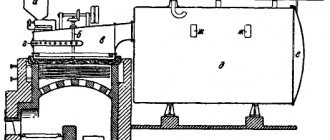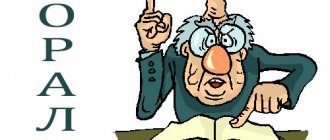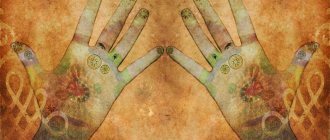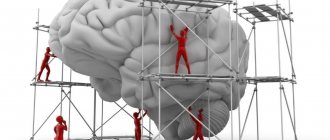What is relaxation?
Relaxation is considered to be a response to the ever-accelerating pace of life and the emergence of a large number of external negative factors. Interest in it increased in the second half of the twentieth century, but methods and methods of relaxation have been used since ancient times. Relaxation is understood as a means of relieving muscular and psychological tension, which is expressed in various methods and techniques that can be divided into three groups - medicinal, physiotherapeutic and psychophysiological.
What are the benefits of relaxation?
The purpose of relaxing muscles and relieving psycho-emotional tension is to relieve stress and restore strength. It is no coincidence that relaxation is considered one of the most effective ways to increase performance: with the right approach, high physical and mental activity is ensured. Exercises are also recommended if you have hypertension. Special techniques allow muscles to relax, thereby minimizing the risk of destructive processes in muscle tissue and psychosomatic disorders.
Thus, relaxation therapy helps restore and maintain physical health (many diseases are caused by constant muscle and psychological tension). As a result of regular exercise, your health improves, headaches go away and blood pressure normalizes. Relaxation exercises are also recommended for those people who suffer from insomnia and increased anxiety.
Massage
Various relaxation techniques are especially effective for people with high muscle tension, as it is the cause of many diseases. People with low muscle tension are less likely to experience the effects of relaxation. When a person is exposed to stress, muscle tension occurs in the body. This tension is a defensive reaction that prepares the body for action. The body perceives a signal of a threat - stress, and activates active defense. (from Latin relaxatio - relief, relaxation) - a state of rest associated with complete or partial relaxation of muscles. There are two types of relaxation: long-term relaxation, which occurs during sleep, hypnosis and pharmacological treatment, and relatively short-term relaxation...
Relax
Even passive relaxation on the sofa is not always good relaxation if the refrigerator is rattling and the TV is humming in the next room. To find peace of mind, reduce exposure to irritants to a minimum and spend half an hour or an hour in this state. An improved version of the “home massager” is the Yamaguchi massage chair. The device is intended for people who need deep relaxation of the muscles of the back, neck and buttocks. By kneading and warming tissues, the electronic assistant helps relieve fatigue, both physical and mental, and get rid of back pain. And although its acquisition is associated with significant costs, it is a one-time expense. Unlike the services of a professional massage therapist, who must pay for each session.
What does relaxation mean?
Psychophysiological relaxation techniques refer to techniques for relaxing muscles using the mind and exercise. To use these techniques, comfortable conditions are important: absence of bright light, comfortable temperature, clothing that does not restrict movement, absence of annoying noises and other irritants. It is not recommended to practice relaxation on a full stomach, as digestion interferes with relaxation. The first method involves relaxation of muscle tissue, which follows the initial tension. The essence of this technique is that a person must tense the muscles (one or more groups) for 5-10 seconds, and then focus on relaxing them for 15-20 seconds.
What is relaxation?
The effectiveness of relaxation has been proven by many psychologists. Every person happily sits back in a chair after a hard day at work, closes his eyes and seems to “switch off” for a few minutes. This is relaxation - a person’s ability to pause, forget about the external environment and focus solely on himself.
Relaxation as a healing technique arose back in the 30s of the 20th century in the USA; it was used to relieve nervous tension and eliminate muscle tone using certain techniques and techniques. Initially, it looked like relaxation in a psychologist’s office, accompanied by certain actions by the trainer. The pioneers of this method were the American psychologist E. Jacobson and the neuropathologist G. Schultz from Germany.
Relax massage
Massage is one of the most favorite techniques for many people. The need to relax the body and, as a result, balance the emotional state is a proven necessity for a healthy, fulfilling life. Relaxation massage is designed to relax the body using light stroking and pressure. This, in turn, will give a calming impulse to the brain. As a result, the patient will completely relax and feel real peace and tranquility.
During the session, the cervical-collar area, back, legs, head and face are massaged; massage of the genitals and abdomen is excluded. During the process, most patients experience a state close to sleep, or even fall asleep. Everyone who has ever attended such a session knows what relaxation is in a massage room. For people leading an active lifestyle and holding responsible positions, this type of relaxation is simply vital.
Breathing and relaxation music play a special role in relaxation practice. The abdominal technique consists of slow, deep breaths through the nose and full exhalations through the mouth. Nervous tension goes away on its own when breathing is properly adjusted.
Music
Recently, the technique of musical relaxation has been quite actively used. Some psychologists recommend combining several techniques. Let's say use deep breathing and music. Experts say that it is enough to devote about ten minutes to such relaxation, and your emotional mood will improve significantly. The most effective relaxation sounds of nature are: the sound of a waterfall, the murmur of a river, the whisper of a forest, the singing of birds. Classical music is also an excellent relaxant.
Relaxation techniques
There are a lot of relaxation methods. We will look at some of them:
It's no secret that music has a direct impact on people. Cheerful rhythmic music energizes us, inspires us, it is good to play sports with it, and melodic compositions, on the contrary, help us relax and unwind. Today we will look at such a direction as relaxation music, and what is it for?
The word “relaxation” itself comes from the Latin “relaxatio” - weakening or relaxation.
Candles
We hear many wise words from the media and the Internet, most of them require additional decoding. After all, not all citizens have a higher education, and those who have graduated from colleges and universities cannot put a few words together. All relaxation procedures are based on sensory stimulation (for example, massage, various types of gymnastics, spa capsule) or sensory deprivation, that is, deprivation of sensory stimuli (primarily floating in the air). If you correctly determine your type of perception, you will be able to choose the relaxation option that suits you. Just in case, you can try a little of everything: if you come out of the float tank feeling exhausted, look for a source of inner strength in a massage. The most important thing is to find your own relaxation and do it regularly.
Relaxation time
Finding free time to spend alone with yourself and completely relax is necessary for every person who cares about their own health. Muscle relaxation, removing tension, taking a relaxation bath is best before bed, when all the housework is done, homework with schoolchildren has been learned, and no one is interfering with proper rest. The opportunity to close yourself in a room and spend half an hour alone with your thoughts, lie down to pleasant music, fills the body with lightness and gives new strength. It is recommended to immerse yourself in relaxation whenever a person feels tired.
Currently reading: Watch your thoughts, for they become your destiny
Youth Dictionary – Relaxation
(Latin: relaxatio – relaxation of tension). A state of rest and relaxation of varying degrees of duration. It is caused in different ways: it occurs spontaneously during sleep, develops under the influence of certain psychotropic drugs, is one of the moments of psychotherapy... If the weather permits, it is better to go out of town for relaxation. At least a few kilometers of walking in nature, breathing fresh air, pleasant fatigue: a little physical activity is one of the stages of preparation for quality rest. Try not to think about current affairs, problems - it’s better not to think about anything at all, listen to the silence and feel how you become part of this silence.
What is relaxation?
? The term is borrowed from the Latin “relaxatio”, which means “relax”, “liberate”. Relax is a calm, quiet state associated with partial or complete relaxation of the muscles. The next hour passed in paradise - it seems that I even muttered half asleep. Sometimes I would fall asleep and then carefully wake up. When the session ended, I was in a blissful state, as if a spring had been released inside me. I realized: all these years I've missed fragrances terribly! Not being able to use aromatic oils at home deprived me of a powerful boost of energy.
Why is relaxation needed?
To restore the physical strength of the body, there is sleep and rest; signs of emotional exhaustion arising from unfavorable external conditions and stressful situations can be eliminated by muscle relaxation. There are many techniques aimed at relaxing the body. All of them create a feeling of heaviness, warmth, and immerse a person in a state of peace. As a result, signs of overwork are relieved, performance increases, and mood improves. Musical accompaniment - sounds of nature, calm melodies make relaxation effective.
Relaxation methods
Daily release for the body - relaxation can help you survive in difficult modern conditions. Deep relaxation techniques are aimed at working with your body and mind. The ability to control muscle tone, bring breathing into the desired rhythm, self-hypnosis - these techniques help to achieve a feeling of warmth and peace. Experts believe that the point on which relaxation of the entire body depends is the solar plexus. Other common ways to relax are:
- massage;
- bath;
- diaphragmatic breathing;
- swimming.
Goals of the methodology
What is relaxation therapy? Everyone understands this term differently. When going to a spa or to a psychologist, each person pursues his own goals. Some people want to get rid of complexes and obsessions, while others want to relax with good music with the help of an experienced coach. Be that as it may, total relaxation solves a lot of problems:
- elimination of muscle tension;
- working on emotional trauma;
- personal growth;
- replenishment of the body's energy reserves;
- healing of the body.
Relaxation methods
Since psychophysiological relaxation is considered to be the most accessible and popular technique, let’s consider the main relaxation methods within this area. So, the following relaxation methods are most widespread:
- muscular;
- mental (or figurative);
- respiratory.
The first method is to relax the muscle tissue, which occurs after preliminary tension. The meaning of the technique is that a person needs to tense his muscles (one or several groups) for 5-10 seconds, and then concentrate on relaxing them for 15-20 seconds.
The method of Dr. E. Jacobson (he developed progressive muscle techniques) includes more than two hundred exercises that are aimed at working with various muscles. The exercises are initially focused on working with muscles at the physical level, but regular exercises help a person develop the ability to relax through volitional effort.
Mental relaxation technique is a part of the meditation process that helps you relax by creating various mental images. A simple method, which is often used on a subconscious level, is breathing. Its meaning is to take breaths that help overcome anxiety and develop the correct type of breathing. The technique of performing the exercises may vary depending on the chosen direction of respiratory relaxation.
Types of relaxation
The Harvard physiologist’s technique was called “progressive relaxation” and was based on gradual tension and relaxation of certain muscle groups. Today it has become obsolete because Jacobson insisted on the need for solitude and complete concentration on the feeling of relaxation. The widespread use of the relaxation method was achieved thanks to the proof of the relationship between the body and the emotional state and soul.
Today, differential relaxation is more popular. This technique can be used anywhere, the main thing is to realize which muscle group is working and which is automatically tightened. When walking you can relax your shoulders and arms, at your desk you can relax your abs, in any situation you need to relax your facial muscles.
The synthetic method combines the two previous approaches together and includes several stages. Initially, you need to retire and practice relaxing while lying down. The second stage is relaxation in any convenient place. The final stage includes analytics. It is necessary to analyze which muscle groups are in the “risk zone” and become most toned at the time of negative emotions and stressful situations. You should try to work these muscles, relaxing them as much as possible.
In our country, people did not know what relaxation was for quite a long time, and only with the beginning of perestroika did domestic psychologists begin to use this technique for their wealthy clients. In the modern period, you can relax on your own, without the participation of a trainer. It is enough to read the literature and master some relaxation techniques.
Relaxation massage: indications and contraindications
A relaxing back massage is worth it. Everyone needs a massage because it is recommended for:
Relaxation massage has contraindications
- Chronic fatigue.
- Increased muscle tension.
- Frequent colds.
- Depression.
- Insomnia.
- Emotional and physical fatigue.
- Nervous overstrain.
- Stressful situations.
However, like any therapeutic procedure, a relaxing full body massage has some contraindications. Please read these warnings:
- AIDS.
- Presence of malignant tumors.
- Thrombosis.
- Acute or chronic osteomyelitis.
- Angiitis, inflammation of the lymph nodes.
- Infectious, pustular, inflammatory formations on the skin.
- Predisposition to bleeding.
- Acute inflammatory or infectious process in the body.
What is relaxation, the meaning of the word in medicine and Wikipedia
Many people don't feel the need to relax in any other way than by changing activities. Thoughts like “I’ll go on vacation, then relax” are no better than the simple idea “let’s relax in “that world”! Yes, at some point we will all “rest in peace”! And I want to relax and work happily and joyfully, and give birth to and raise “a bunch” of grandchildren, “plant a house”, “build a tree”…. Here, too, the main condition is complete peace and quiet, so try to explain to your roommates why they should not be disturbed during their vacation. If you can go to a separate room and lock yourself there, great; if not, you can retire to the bathroom.
What does it mean to relax???
Please tell me… it’s really necessary….
Alla
Relaxation is a retreat into the subconscious of “sleep”; this is a high level of development of the “breathing” of the body, against the background of which the task of perfection pulsates, which is part of the result of life, noting the high energy of “time” in a person... Relaxation (from the Latin relaxatio - weakening, relaxation) - deep muscle relaxation, accompanied by the removal of mental voltage. Relaxation can be either involuntary or voluntary, achieved as a result of the use of special psychophysiological techniques. Involuntary relaxation (decreased skeletal muscle tone up to complete immobility) can occur as a pathological condition as a result of illness, or as a result of the use of special drugs - muscle relaxants. Conscious relaxation is an integral part of many (perhaps even most) mental, psychotherapeutic and hypnotic techniques; it is also very common in Buddhism and in Eastern healing teachings (Indian yoga, wushu, etc.), and is the most important stage in entering meditative trance. P.S. For philologists: IN RELAXATION all actions are without the participation of consciousness, while in RELAXATION - everything is with the participation of consciousness...
M
relax is a state of self-knowledge - when you understand all your capabilities to such an extent that you can move wherever you want and fly like the wind :). You become one with the entire universe... I wonder what's next? https:///catalog/rest.esoteric.lobotras
Relaxation for quality sleep
1. The most general meaning is a state of low tension in which the emotional level, especially the level of emotions such as anxiety, fear, anger, etc., decreases. 2. the process used to cause the condition; see here relaxation therapy. 3. more details…. There are various relaxation techniques that can help combat stress and maintain well-being in conditions of increased stress and constant emotional tension. By choosing the right methods, any person can independently restore their strength, increase their performance and normalize their psycho-emotional state. Regularity is considered the key to effective relaxation, so physical exercise should become an integral part of everyday life.
Which relaxation is more beneficial for the body?
At home, any relaxation is useful, as long as the goal is achieved: the body is relaxed, in complete peace, the head is clear and light, no thoughts swarm in our brain territory.
To achieve relaxation, various methods are used: muscle relaxation; breathing relaxation; visual relaxation.
Let's talk a little about each of these methods of entering relaxation.
- Muscle relaxation allows us to gain physical strength, since under the influence of muscle relaxation all our body parts are at rest, the muscles are relaxed and resting.
- Breathing relaxation is very important for maintaining our internal organs in good condition. During breathing exercises, the body is saturated with oxygen, which is distributed throughout the body and is important for the condition of the heart, lungs, and other organs. After all, for stable work they also need regular breaks in the form of relaxation.
- Visual relaxation is my favorite. Everyone knows that our eyes are both our friend and our enemy. The brain causes appropriate reactions and distributes beneficial or harmful effects throughout the body throughout our entire body after something comes into our field of vision.
If we constantly contemplated only the pleasant and good, then there would be less stress, brain stupors, and the whole body would work like a clock.
But precisely because we often see something that depresses us, nerve cells give aggressive impulses to the brain, and from there a wave of various problems goes towards almost every organ of the body.
Therefore, first of all, I turn to visual relaxation. Moreover, this is the most accessible for me, since I almost constantly work on a computer, and I can get everything bad, as well as everything good, from the monitor.
Currently, many different programs for visual relaxation have been developed. I suggested one of them at the beginning of the article.
Don't think that this is some kind of pampering. This is an effective method that allows you to distance yourself from thoughts and actions.
Changing wave patterns allow the brain to relax. I noticed that while practicing with this square of charm for 15-20 seconds, I simply cannot think about anything bad, even if I try to fixate myself for the sake of the experiment. Each new wave is an exhalation with a feeling of “Ah.” And this is good.
Such visual relaxation lifts your spirits and gives rise to new (positive) ideas. Try it! Just a few seconds, but the benefits are a hundredfold. Here is the answer to the question: “how to relax at home.”
Any visual relaxation is available at home.
It can be relaxation through art objects.
Set a rule for yourself: every day, lie down on a soft (!) bed for a few minutes and watch something distracted.
How to distinguish relaxation from rest?
In fact, we hear about the need to rest all the time. But not every vacation can be a real relaxation. You can relax doing your favorite activity or reading or watching TV series. Agree that these things will not allow you to relax.
You will empathize with the characters or make an effort to do what you love. This is not relaxation. It's just a break from hard work. Relaxation is doing nothing in the truest sense of the word. You are not here. There is only your body, which is incredibly calm.
There is a brain that is empty, there is no information in it, it is a blank sheet of paper. This kind of relaxation is useful. But it doesn't last very long. A few minutes, and what a cleansing and strengthening.
Relax and be happy, strong and healthy!
Music for meditation and relaxation
Special music is suitable as musical accompaniment in moments of relaxation. Rhythms and melodies help you look deep into yourself and achieve maximum relaxation. Cosmic overtones, shamanic rhythms, and the use of unusual musical instruments make trance-style motifs an indispensable companion for various practices and relaxation. The TOP 10 performers in the “relaxation” category are as follows:
- "Enigma"
- "Amethystium";
- "Broadway project";
- "Apparatus";
- "De phazz";
- "Air";
- "Deep forest";
- "BT";
- "Vangelis"
- "Jay-Jay Johanson."











